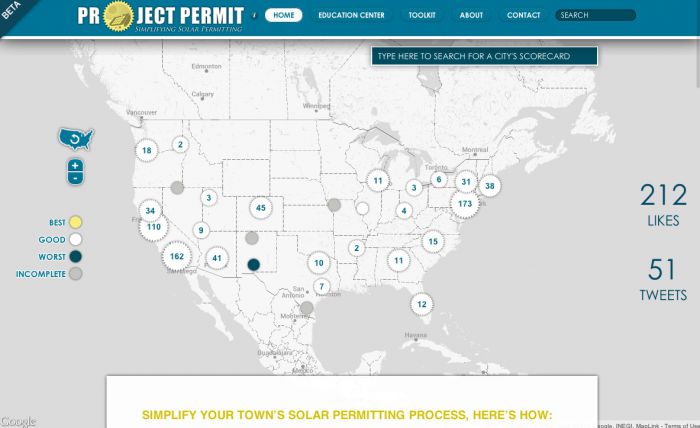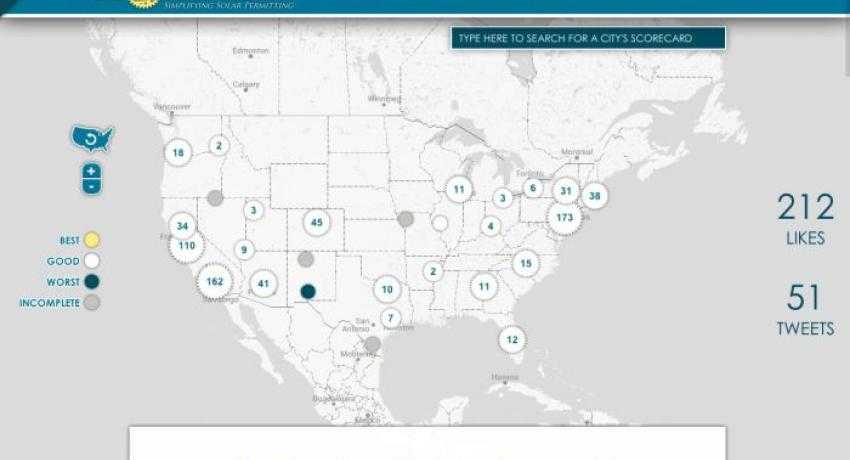Vote Solar Initiative’s Project Permit tackles soft costs of solar
 Now that photovoltaics have come so far down in price, its time to look elsewhere to help reduce the costs of solar. In the U.S. one of the chief places to target are the permitting processes for solar. That’s what the Vote Solar Initiative’s new Project Permit is aiming to do.
Now that photovoltaics have come so far down in price, its time to look elsewhere to help reduce the costs of solar. In the U.S. one of the chief places to target are the permitting processes for solar. That’s what the Vote Solar Initiative’s new Project Permit is aiming to do.
“We’ve found that out of the thousands of solar projects Clean Power Finance facilitates, permitting issues cause more delays than any other issue,” said Matt Ziskin director of product incubation at Clean Power Finance. “Removing unnecessary permitting requirements is one if the keys to making U.S. solar installation costs competitive.”
With more than 18,000 authority having jurisdictions or municipalities in the U.S., each with their own permitting process for solar arrays on homes and businesses, the timeline for permitting and inspecting a PV array varies greatly from town to town—or even on the same street. Project Permit, which is in its beta phase is designed to help solar stakeholders, municipal officials and people understand their permitting processes, how they stack up to other city’s or towns practices and how they can improve the process.
“Few realize how much of an impact local governments can have on the cost of going solar. But with solar panel prices having dropped fast and far over the past few years, ‘soft’ costs like local permitting represent the most significant opportunity for keeping solar prices trending down,” the Vote Solar Initiative said upon the launch of the site, projectpermit.org. At launch, the site had data about roughly 800 communities across the U.S.
“Based on our 2011 study, inconsistent local permitting standards add an average of over $2,500 to the cost of each home solar installation across the country,” said Bryan Miller, Sunrun vice president of public policy & power markets. “We’ve been working diligently to remove or significantly lower this cost and help Americans save money by switching to solar.”
Project Permit has an interactive map that draws on data from the recently revamped SolarPermit.org site, which is a national database of solar permitting processes. Both SolarPermit.org and Project Permit are supported by SunShot Initiative grants in an attempt to reduce confusion about the permitting process and the soft costs of solar. However, Project Permit assigns a rating of Best, Good, Worst or Incomplete based on information from SolarPermit.org.
To help those in a community with a low score—or no score—Project Permit also has a toolkit to help users take action by talking to their mayor or community council about how to make the permitting process easier. The toolkit includes a feature that identifies mayors and their emails across the country and a Simplifying Permitting Packet site visitors can send them to help jumpstart the process.




